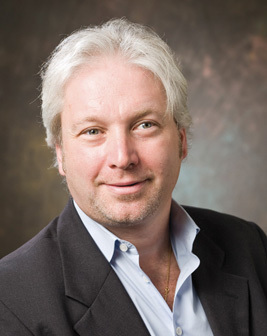 loading
loading
Milestones$2.5 million award for probing the unknown Terry DagradiTamas Horvath won an unrestricted "pioneer" grant from the NIH. View full image
A novel gave Yale neurobiologist Tamas Horvath an idea to test in the laboratory. In José Saramago’s Blindness, an epidemic renders nearly an entire society blind. Chaos ensues. "Depressing," thought Horvath, and then he reflected that some people become depressed when daytime wanes in winter. Perhaps light influences the brain not only through visual pathways, but also by affecting other parts of the brain. In the lab, Horvath found that light independently affects the serotonin system, which is linked to mood. That's the kind of inquiry that intrigues Horvath—research that enters unmapped territory. It's not the conventional route, in which well-regarded scientists from several laboratories compete to answer one of the salient scientific questions of the day. "In the end, those questions will be resolved, because these are outstanding people," says Horvath, who chairs the medical school's Section of Comparative Medicine. "I'm interested in pursuing something that not many people are pursuing." Horvath's self-directed approach paid a dividend this summer, when the National Institutes of Health awarded him $2.5 million in unrestricted research money. Haifan Lin, director of the Yale Stem Cell Center, also separately received the same Pioneer Award, which the NIH gives nationwide to scientists "of exceptional creativity." Horvath's questions generally relate to how the brain is influenced by peripheral tissues like the liver, the pancreas, and fat and muscle. Recently, he has been studying how a high-fat, high-carbohydrate diet affects the hypothalamus, which governs metabolism. He sees the hypothalamus as a potential link between his research and Haifan Lin's work on stem cell renewal. If stem cells play a major role in replacing dying or aging cells in various tissues, says Horvath, "then obviously the health of the stem cells will depend on metabolic principles—and metabolic principles are governed by the hypothalamus." Horvath thinks the two pioneers might work together in the future.
The comment period has expired.
|
|